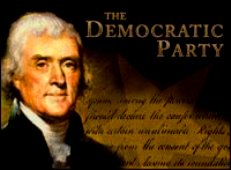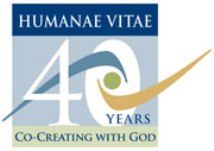Brothers and Sisters in Christ,
The Lord God has invited all of humanity to Himself with the gift of salvation and Catholics have a special role in witnessing to the truth that He has given us. This is the truth of our Catholic faith and we participate in a special way with His redemptive works. We are called to transform the fallen world in our words and deeds. In our reception of the Lord Jesus Christ in the sacraments, we literally as St. Peter said become “partakers in the divine nature.” He strengthens us in our weakness to carry out the arduous Catholic vocation of Christian virtue.
The catechesis of the average Catholic in the United States is outrageous. This has led to many Catholics being lukewarm in their faith-practice, apathetic toward the faith, and worse, vocal dissidents. It is common practice for Catholics to mistake the Church's doctrines with her disciplines. The doctrines, or dogma, of the Church must be adhered to as it is irreversible and permanent; on the other hand, her discipline, as history has shown us, can and has changed. Catholic theologian Scott Hahn often recounts that he took for granted the Protestant conviction that authority for Christians rested in Scripture alone. He was surprised to find that Scripture did not support his view. On the contrary, St. Paul wrote in his first letter to Timothy that "the Church of the living God", not the Bible, is "the foundation and pillar of the Truth" (1 Tim 3:15).
Certainly, a Catholic who willfully denies the teaching authority of the Church in regard to faith and morality is guilty of heresy and is excommunicated by the act itself—it does not have to be formal. The penalty of excommunication fundamentally underscores two realities: the seriousness of the assent of faith and the desire for the excommunicated Catholic to reconcile with God and the Church through conversion of heart and mind. This was fully present in the early Church. St. Paul makes reference to it in his first letter to the Corinthians (cf. 1 Cor. 5:1-4).
The Catholic Church certainly does not consider itself a Christian denomination. The divisive concept of "denomination" is quite foreign to her. The Catholic Church was founded by Christ, whose authority was passed to St. Peter, the prince of the Apostles, and that apostolic lineage is preserved through the apostolic succession of bishops all over the world. The Catholic Church consists of many different rites and jurisdictions, all under the bishop of Rome, currently Benedict XVI. The Catholic Church has weathered a lot over the years and is the Church of many great saints and sinners who had one goal: to work out their salvation in accord with the authentic teachings of Jesus Christ. Contrary to the typical American disposition in regard to matters of faith, we cannot simply do it our way. We did not create the Catholic faith. We received from the Catholic faith from our parents, our pastors, our bishops, and ultimately from the hands of the Apostles. If what we have received is from the Apostles then we can be confident that what we have received the faith from Jesus Christ who established the Church to preach and safeguard His teachings.
The Church is a loving parent. She is our Mother and therefore she is naturally concerned for the welfare of the children born to her in the waters of Baptism. "It is in the Church, in communion with all the baptized, that the Christian fulfills his vocation. From the Church he receives the Word of God containing the teachings of 'the law of Christ.' From the Church he receives the grace of the sacraments that sustains him on the 'way.' From the Church he learns the example of holiness and recognizes its model and source in the all-holy Virgin Mary; he discerns it in the authentic witness of those who live it; he discovers it in the spiritual tradition and long history of the saints who have gone before him and whom the liturgy celebrates in the rhythms of the sanctoral cycle" (CCC 2030).
We cannot pass on the fullness of faith when we make ourselves the final arbiter of the Truth. It is contradictory to profess simultaneously a love for the Church and distrust in her teaching authority. Just as we heed the advice and warnings of physicians to maintain our biological and psychological health, we must adhere to the Church’s Magisterium for they have been given the charism via the Holy Spirit to hand on faithfully and fully the truth Christ wants us to receive so that we might have all the tools necessary to successfully work out our salvation. We owe it to ourselves to learn what the Church teaches, to examine her reasoning with an open heart, and to associate ourselves with the work of spreading the Faith. We are Catholics through our baptism and public professions of faith; we assent to all the Church teaches through these actions and bind ourselves to follow the Church’s laws and practices.
For Catholics who dissent—not those who carefully question or struggle with theological and moral positions of the Church in order to understand and conform to the truth she preaches—the act of declaring that the Church is objectively wrong on theological and moral matters is no small matter. In fact, it is scandalous to call yourself Catholic after having taken such a position. To be Catholic means to be in communion with the Bishop of Rome, the Pope. If you do not mean the criterion, that is, assent fully to the Catholic faith, one cannot be truly in communion with the Vicar of Christ and successor of St. Peter the Apostle. Pray. Discern. Question with sincerity and purity of heart. Stay close to the sacraments (particularly Confession if you find yourself in a state of objective mortal sin). Don't easily succumb to temptations and the false earthly comforts in place of the will of God; Christ Himself said of those who do such, "I tell you the truth, they have received their reward in full."
Sincerely yours,
Eric
Wednesday, March 12, 2008
A Letter to Catholics in Disagreement with Rome
Subscribe to:
Post Comments (Atom)
This Catholic Loves Benedict XVI

Knights of Columbus: Champions for the Family

The Pro-Life Movement in the Democratic Party



































0 Comments:
Post a Comment